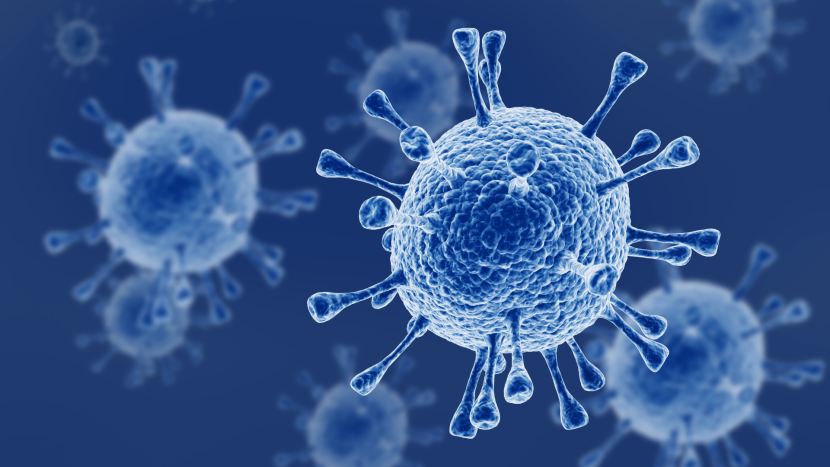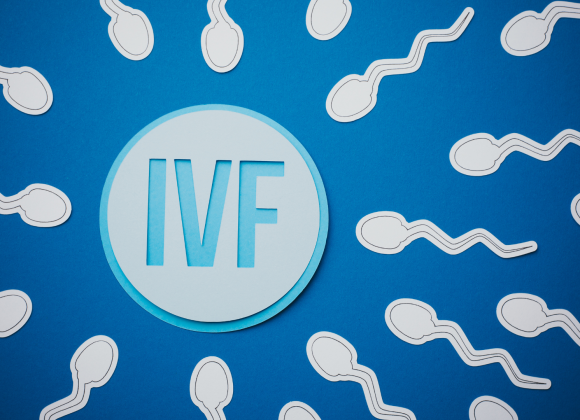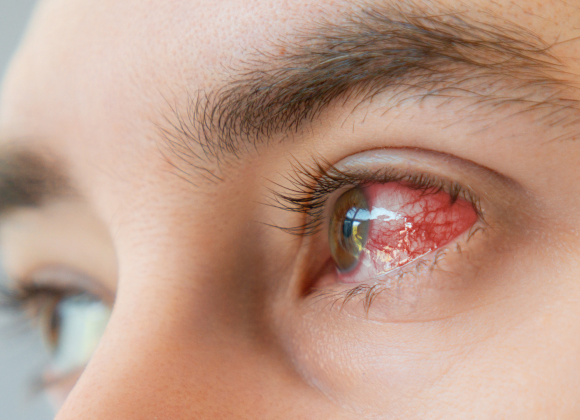Overview
Norovirus causes sudden vomiting, diarrhea, and stomach pain, starting 12–48 hours after exposure. It spreads easily through contaminated food, water, surfaces, or close contact. Symptoms usually last 1–3 days, and most recover without treatment. However, young children, older adults, and those with weak immune systems may face severe dehydration and need medical care.
Outbreaks often occur in crowded places like hospitals, schools, nursing homes, and cruise ships. Proper hygiene and disinfection help prevent its spread.
What is Norovirus
Norovirus is the leading cause of acute gastroenteritis (stomach and intestinal inflammation) worldwide. It spreads easily through contaminated food, water, or surfaces. While most people recover quickly, older adults, young children, and those with weakened immune systems can suffer severe dehydration, which may become life-threatening.
Originally named the Norwalk virus after an outbreak in Norwalk, Ohio (1968), norovirus causes 19–21 million U.S. cases yearly, leading to over 465,000 ER visits (mostly children) and 900 deaths, primarily in seniors. It’s responsible for over half of all foodborne outbreaks and is often called the “winter vomiting bug” or “stomach flu” due to its seasonal spike. Though linked to food poisoning, it spreads in other ways too. (🔗)
Types of Norovirus
Norovirus belongs to the Caliciviridae family and has 10 genogroups, further split into nearly 50 genotypes. The most common strain, GII.4, causes global outbreaks and includes variants like GII.4 Sydney, GII.4 New Orleans, and GII.4 Hong Kong.
Another emerging strain, GII.17, has recently caused over 70% of U.S. outbreaks, likely because few people have immunity against it.
Symptoms of Norovirus

The main symptoms include:
- Nausea
- Vomiting
- Diarrhea
- Stomach pain
Some people may also experience:
- Headache
- Fever
- Body aches
Symptoms typically begin 12–48 hours after exposure and last 1–3 days.
Do Symptoms Differ Between Children and Adults?
While norovirus affects both groups similarly, adults tend to have more diarrhea, whereas children often vomit more frequently.
Causes
How Norovirus Spreads
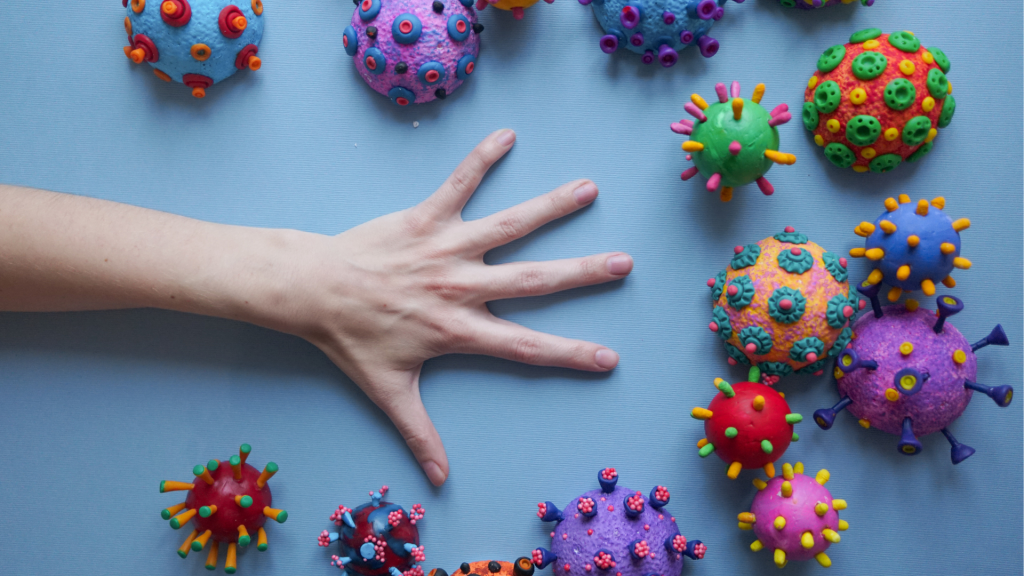
Norovirus is highly contagious and can spread easily from person to person. The virus is present in stool and vomit, and you can be contagious from the first symptoms until days after recovery. It can also survive on surfaces for days or even weeks.
Common Ways Norovirus Spreads:
- Eating or drinking contaminated food or water
- Touching your mouth after contact with a contaminated surface
- Close contact with an infected person (e.g., caring for someone who is sick)
Norovirus is hard to eliminate—it resists heat, cold, and many common disinfectants, making outbreaks difficult to control.
How Long Does Norovirus Last?
Norovirus, symptoms typically last 1 to 3 days. However, even after you recover, you can still spread the virus to others.
How Long Are You Contagious?
- Most contagious: First 48 hours of illness
- Still contagious: Up to 2 weeks after symptoms resolve (though infectivity decreases over time)
When Can You Return to Work or School?
- Most people: After being symptom-free for 48 hours
- Food handlers: Should wait at least 72 hours before handling food to prevent outbreaks
The virus remains transmissible even after symptoms fade, so good hygiene is crucial to avoid spreading it.
Risk factors
You’re more likely to get norovirus if you:
- Eat food prepared by an infected person or exposed to contaminated surfaces/water
- Attend daycare or preschool (common in outbreaks among young children)
- Live in group settings (nursing homes, dorms, or military barracks)
- Stay in crowded places (hotels, cruise ships, resorts)
- Have close contact with someone infected
These environments make it easier for the virus to spread rapidly. Practicing good hygiene is key to reducing risk.
What are the complications of norovirus?
While most healthy adults recover from norovirus within a few uncomfortable days, the virus can become dangerous for vulnerable groups. Young children, seniors over 65, pregnant women, and those with chronic illnesses face higher risks of severe dehydration, which in rare cases can turn life-threatening.
Watch for these warning signs of dehydration:
- Unusual tiredness or weakness
- Cottony dry mouth and persistent thirst
- Dizziness when standing
- Dark urine or going hours without urinating
- In infants – no tears when crying and unusual drowsiness
- In elderly – confusion or listlessness
If you notice these symptoms in yourself or a loved one, don’t wait – seek medical attention. For little ones and seniors especially, dehydration can escalate quickly. Keep small sips of fluids going even if vomiting persists, and look for oral rehydration solutions at your pharmacy. Remember, what might just be a rough few days for you could become serious for those more fragile.
Can Norovirus Be Prevented?
- Yes! While highly contagious, these steps reduce your risk:
- Wash hands thoroughly with soap & water (hand sanitizer isn’t enough).
- Rinse fruits/vegetables and cook seafood to 145°F (63°C).
- Avoid close contact with infected people.
- Disinfect surfaces (norovirus survives for weeks!).
- Wash soiled clothes immediately.
If infected: Avoid cooking/caregiving for at least 48 hours after symptoms stop.
Can You Get Norovirus Twice?
Yes—repeatedly. There are many strains, and immunity (if any) is short-lived. You could get sick again weeks or years later, even by a different strain.
Treatment of Norovirus
Most people start feeling better within 1–3 days, but since norovirus is a virus (not bacteria), antibiotics won’t help. Instead, focus on staying hydrated—this is the key to recovery.
How to Prevent Dehydration
- Drink plenty of fluids – Water, herbal tea, or clear broths help.
- Avoid caffeine & alcohol – These can worsen dehydration.
- Try oral rehydration solutions (ORS) – Available at pharmacies, these replace lost electrolytes better than sports drinks.
When to Worry – Signs of Severe Dehydration
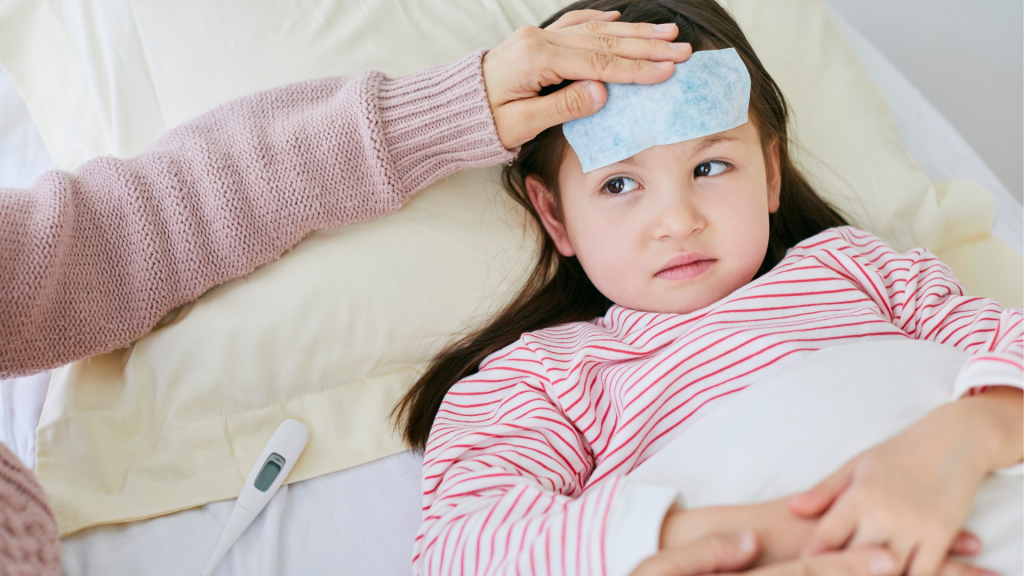
In Children:
- No tears when crying
- Unusual sleepiness or irritability
- Fewer wet diapers
In Adults & Seniors:
- Extreme dizziness or confusion
- Very dark urine or not urinating
- Dry mouth, sunken eyes
⚠️ Seek medical help immediately if dehydration becomes severe—hospital IV fluids may be needed.
Remember: While norovirus is miserable, proper hydration helps most people bounce back quickly. But for young kids, the elderly, or those with weak immune systems, keep a close watch—they’re at higher risk for complications.
FAQs
1. How Long Am I Contagious After Norovirus Symptoms Stop?
Ans: Even after vomiting and diarrhea end, you can still spread norovirus for up to 2 weeks. You’re most contagious in the first 48 hours of illness, but the virus lingers in your system. This is why strict hygiene (handwashing, disinfecting surfaces) is crucial—even when you feel better.
2. Can I Get Norovirus More Than Once?
Ans: Yes. There are many norovirus strains, and immunity is short-lived. You could get sick again within the same season. This is why outbreaks keep recurring in schools, cruise ships, and nursing homes. No vaccine exists yet, so prevention (clean hands, safe food handling) is your best defense.

